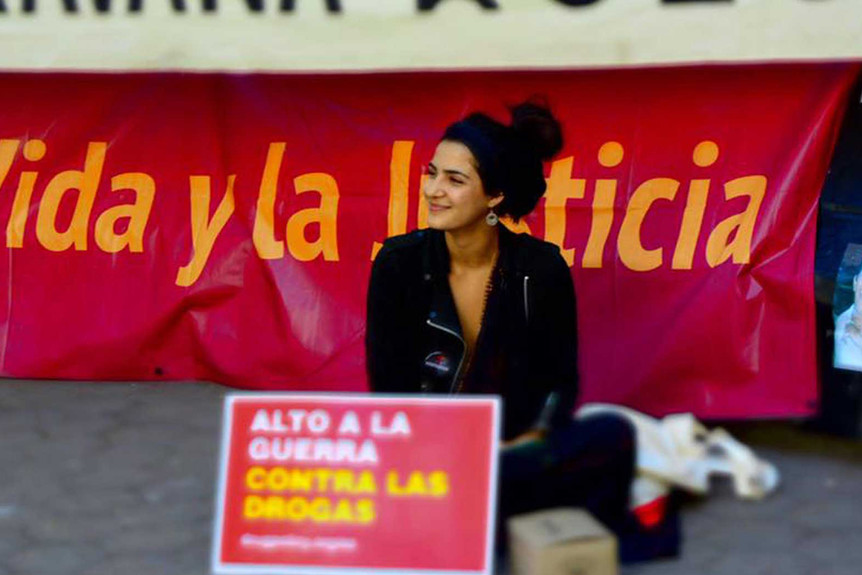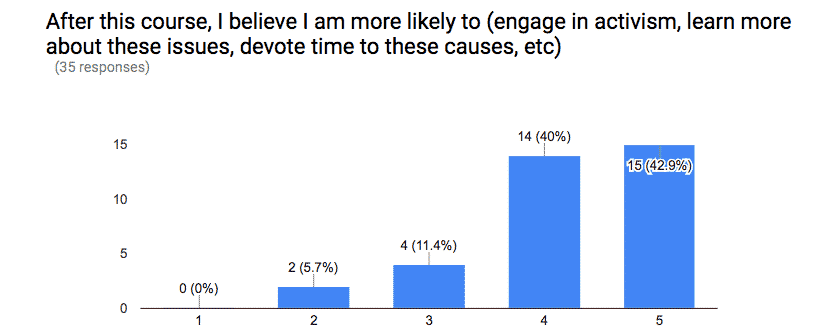Rethinking the drug war in the classroom
UC Berkeley SSDP members are organizing college classes focused on drug education.

Psymposia is a 501(c)(3) nonprofit research and media organization that offers critical perspectives on drugs, politics, and culture. We rely on contributions from our readers and listeners. Your support is vital to sustaining Psymposia.
Support Psymposia’s independent journalism on Patreon and help us drive the Mystery Machine! We’re a bunch of meddling kids who are unmasking the latest shenanigans on the psychedelics beat.
This article was originally published on SSDP.
Last semester, UC Berkeley Students for Sensible Drug Policy members Rhana Hashemi and Lalitha Thirunagari organized a student-organized class titled, “Rethinking The Drug War: Historical Context, Framing, and Education.”
The purpose of the course was to develop student understanding of how the war on drugs “impacts young people, decimates communities, swells the ranks of the juvenile justice system, and negatively impacts school learning and discipline.” Topics included: The War on Drugs in Latin America, Sexual Assault and Drug Use, Psychedelic Harm Reduction, Youth Drug Education, and more. Speakers from DanceSafe, Play Safe Documentary, Drug Policy Alliance, UC Berkeley, MAPS, Supernova Women of Color, and the Caravana Contra la Represión en México came to the class.
Students from all different sectors of campus life were a part of this academic experience, including people who have never been exposed to these conversations. One student says, “I came into this class with a lot of reservations and assumptions about drug use/ers but this class and the readings gave me huge insight and eliminated a lot of the myths that are being spread around. I have used this knowledge to engage in dialogue with my peers in other spaces. Thank you!”
Even students have had personal experience with drug use learned something new in the class. A student says, “As a person of color that has seen drug use in her community, I have definitely seen a different side to drug use – the side that a person can use drugs to get high without endangering their lives and others, which is completely contrary to what I had seen before.”
Students were encouraged to actively participate and shape the discussion, resources and curriculum of the class. The feedback was overwhelmingly positive. 82% of students reported that they are now more likely to engage in activism and learn about the issues. 90% of students feel more prepared to discuss how the Drug War has negatively impacted their communities as a result of this course

This is exactly what chapter leader Rhana Hashemi had hoped to accomplish. She says, “On my campus, a major barrier I saw to recruitment [for SSDP] was the stigma attached to drug policy reformers as merely drug users. I wanted to break down this misconception and expose my campus community to the complex and multi-faceted societal issues that are perpetuated by our War on Drugs.”
Co-organizer Lalitha Thirunagari says, “I am really proud of the UC Berkeley chapter for expanding the discourse about the drug war to reach more students. We didn’t expect such a large turn out the first day of our class but were so happy to see how many students are interested in learning more about these issues. The fact that members of our chapter specialize in various topics related to the drug war was instrumental in building this course and offering such a unique conversation to the students.”
Hey! Before you go… Psymposia is a 501(c)(3) non-profit media organization that offers critical perspectives on drugs, politics, and culture. We strive to ask challenging questions, and we’re committed to independent reporting, critical analysis, and holding those who wield power accountable.
Our perspectives are informed by critical analysis of the systemic crises of capitalism that have directly contributed to the unmitigated growth of addiction, depression, suicide, and the unraveling of our social relations. The same economic elite and powerful corporate interests who have profited from causing these problems are now proposing “solutions”—solutions which both line their pockets and mask the necessity of structural change.
In order for us to keep unpacking these issues and informing our audience, we need your continuing support. You can sustain Psymposia by becoming a supporter for as little as $2 a month.





